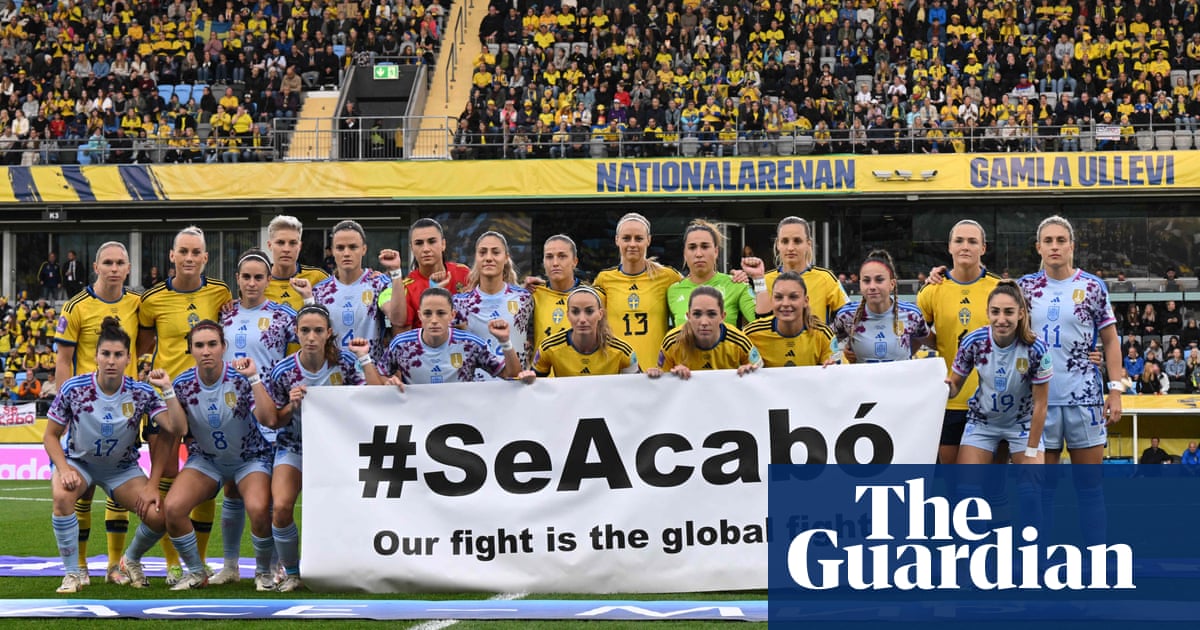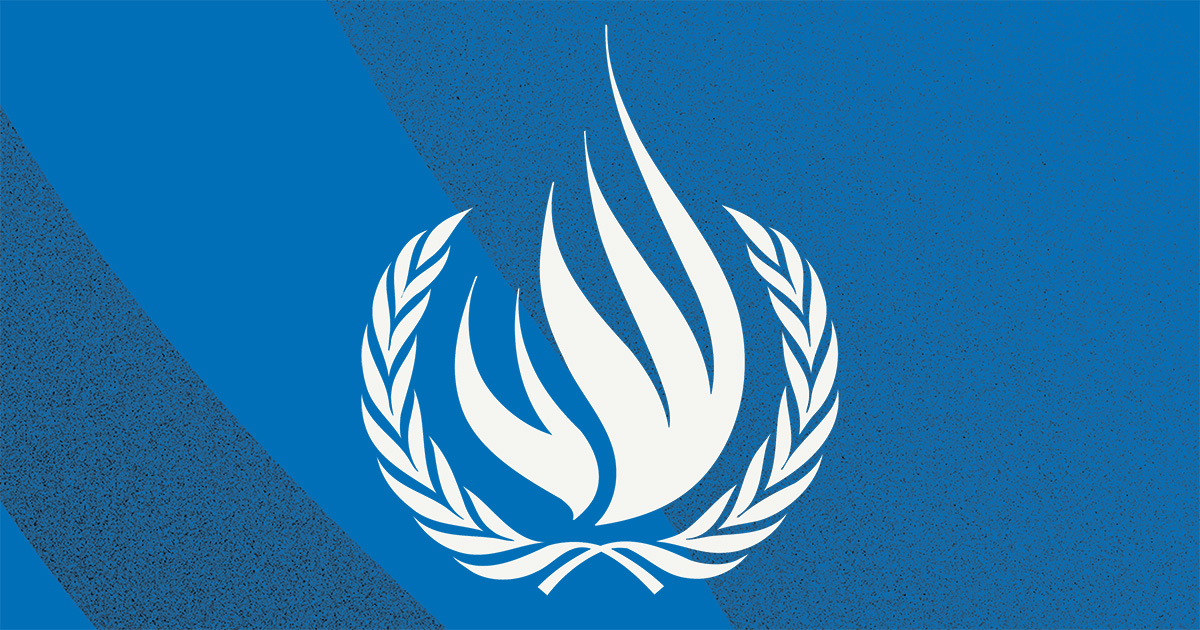
Fists clenched and raised, “Se Acabó” and “10” scrawled across taped wristbands, tired faces and a rolled banner clutched by captain, Alexia Putellas.
These were not the images that Spain’s world champions expected would go around the world in their first fixture with a star on their chest and a world champions badge to the left of it, a gutsy and resilient 3-2 win over Sweden, but they know they must be. Together, Putellas and her teammates unfurled the white banner with black text that read “#SeAcabó – Our fight is the global fight”, before merging with the Sweden side in a show of solidarity with the struggle of the, frankly, heroic Spanish players.
This has been a decades-long fight, one that has only been taken seriously in Spain and globally following the outrageous actions of the resigned Royal Spanish Football Federation (RFEF) president Luis Rubiales in the aftermath of Spain’s World Cup victory last month.
First, Rubiales grabbed his crotch in celebration, then he planted a kiss on the lips of Jenni Hermoso during the medal ceremony, after that he was seen lifting Athenea del Castillo over his shoulder and later saying he would marry Hermoso on the team’s trip to Ibiza. He claimed the kiss was consensual, the proposal a joke, but eventually resigned on the 11 September after insisting he wouldn’t.
Friday’s fixture should have been feisty and fierce, a rematch of the World Cup semi-final in Auckland and a highlight of the opening Nations League fixtures. Instead, in the first half Spain looked sluggish, exhausted and as far from the team that had thrilled in the Sydney final against England as you could get. They were dominated by Sweden, who were aggressive in their pressing of the champions and effective at preventing them from overloading out wide.
Could you blame the Spanish players for the slow start though? They must be exhausted. They have spent more time on Zoom calls haggling over their collective position and the language of their numerous statements than they have re-establishing themselves on the pitch. It showed in the Gamla Ullevi stadium. Adrenaline and a desire to prove themselves and fight for each other had got them a World Cup trophy, but the intensity of the 33 days since the final was surely more than even they could play through.
Rubiales has gone, their World Cup-winning manager Jorge Vilda, who was backed by Rubiales after 15 players wrote to the federation last year saying the environment around the team was impacting their health, has gone, but this match in Gothenburg was still in doubt with 39 players having released a statement demanding deeper and non-superficial changes and stepping back from selection in the meantime.
The decision of Vilda’s former assistant and now head coach Montse Tomé to call up 23 of those players after delaying the naming of the team, with many finding out after it was announced publicly, undermined the federation’s attempt at a conciliatory statement promising change that was released hours earlier and put the players in an impossible situation; stay and break their protest or leave and risk having their registrations as players revoked.
Meetings went on into the early hours with the federation once the players were reluctantly in camp. Mapi León and Patri Guerrero, who refused to apologise for the statement of “las 15” last year and sacrificed their World Cup place as a result, were allowed to leave the camp without sanction, the rest of the players reluctantly and unhappily remained, in part to protect the second-string that would be called up in their place.
That was the backdrop to the rematch with Sweden, in a competition that will determine Olympic qualification and seeding for the 2025 Euros, and it is why Sweden fans loudly applauded the Spanish players as they came out to warm up before the match and had made supportive banners of their own. “Estamos contigo chicas” (“We are with you girls”) read one small sign, a huge “se acabó” banner was displayed behind the Spanish goal, next to that was a “con vosotro Jenni y La Roja” (“we are with you Jenni and The Reds”) banner.
The solidarity was confined to either side of the 90 minutes though, once Sweden swept forward the crowd surged with them. It was inevitable that the hosts would take the lead, they looked sharper, organised and were filled with a desire for sporting revenge. Magdalena Eriksson, making her 100th international appearance, glanced in a header to put them ahead.
Within three minutes of Sweden taking the lead the RFEF announced that its director of integrity, Miguel García Caba, had been sacked, confirming the reports in the Spanish press earlier in the day. The federation gave with one hand, dispensing of the man who was in charge of clearing Rubiales in the federation’s investigation, and took with the other, announcing it publicly mid-match while the Spain players battled back into a game they had been forced to play.
Spain did come back, but Sweden’s goalkeeper Zecira Musovic, who excelled at the World Cup, gifted them the equaliser, fumbling Athenea del Castillo’s long-range effort, which looped into the goal.
Musovic would come to Sweden’s rescue in the second half, with a determined Spain emerging after the break, saving from Aitana Bonmatí, Mariona Caldentey and Del Castillo (one of two World Cup winners to have not signed the statement of the 39, Claudia Zornoza having retired).
Substitute Eva Navarro would put Spain ahead, cutting inside and curling into the top corner from just inside the box. The lead lasted five minutes, with Lina Hurtig latching onto a loose ball and firing past Cata Coll to level. There was time for one final twist, Amanda Ilestedt sent off for bringing down Amaiur Sarriegi. Caldentey converted from the spot.
Spain have bigger fish to fry, but given the context their victory and performance was extraordinary.












